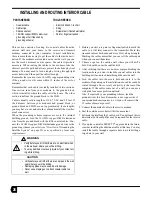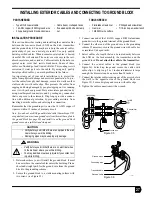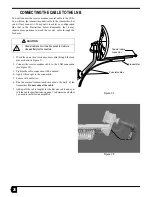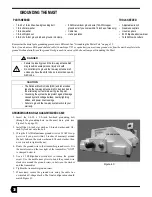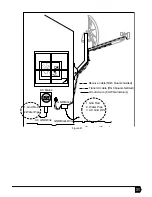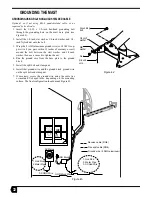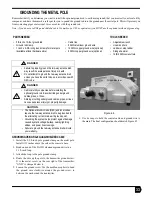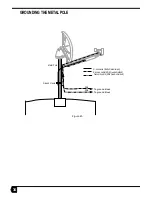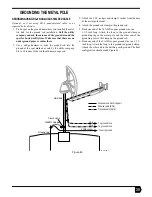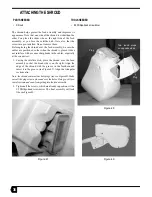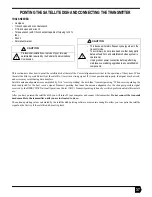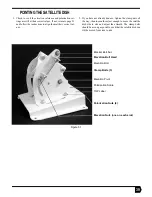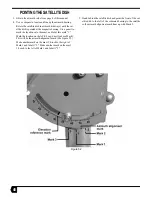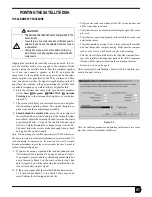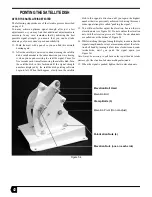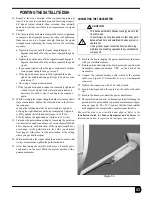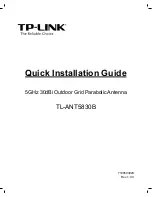
35
GROUNDING THE METAL POLE
GROUNDING USING RG-6 NON-QUAD SHIELDED CABLE
Optional, or if not using RG-6 quad-shielded cable, or as
required by local codes
1. Pick a spot on the ground near where you installed the satel-
lite dish for the ground rod installation. Call the utility
company and ask them to mark the ground around the
spot for buried utility lines. Make sure that there are no
underground pipes or cables there.
2. Use a sledge hammer to drive the ground rod into the
ground at the spot marked as safe by the utility company.
Six to 10 inches of the rod should remain exposed.
3. Attach the 2-3/8-inch ground clamp 13 inches from the base
of the metal pole mount.
4. Attach the ground rod clamp to the ground rod.
5. Bend one end of the 14 AWG copper ground wire in a
1-1/2-inch loop. Attach the loop to the ground clamp or
grounding lug on the metal pole and the other end of the
grounding wire to the clamp on the ground rod.
6. Bend one end of the 6 AWG copper ground wire in a 1-1/2-
inch loop. Attach the loop to the ground rod ground clamp.
Attach the other end to the building earth ground. The final
configuration should match Figure 46.
Figure 46
RG6
Ground rod
Metal Pole
6AWG copper
To earth ground
14AWG Copper
G 23161 F
Ground wire 6 AWG Copper)
Receive cable (RG6)
To ground block
Transmit cable (RG6)
RG6
To ground block
Ground clamp
Summary of Contents for DiRECWAY DW4000
Page 4: ...iv ...






